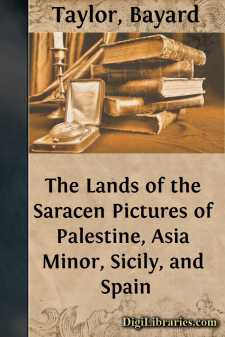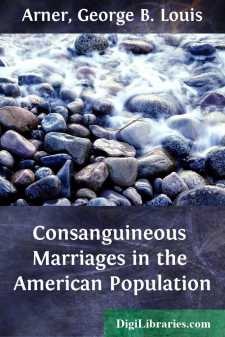Fiction
- Action & Adventure 183
- Biographical 15
- Christian 59
- Classics 6965
- Coming of Age 5
- Contemporary Women 3
- Erotica 9
- Espionage/Intrigue 12
- Fairy Tales, Folklore & Mythology 236
- Family Life 169
- Fantasy 117
- Gay 1
- General 596
- Ghost 32
- Historical 808
- Horror 43
- Humorous 161
- Jewish 25
- Legal 4
- Medical 22
- Mystery & Detective 315
- Political 49
- Psychological 41
- Religious 64
- Romance 160
- Sagas 11
- Science Fiction 730
- Sea Stories 113
- Short Stories (single author) 537
- Sports 10
- Suspense 1
- Technological 8
- Thrillers 2
- Urban Life 31
- Visionary & Metaphysical 1
- War & Military 173
- Westerns 199
Fiction Books
Sort by:
by:
Bryce Walton
After the Doctor gave him the hypo and left the ship, Bowren lay in absolute darkness wondering when the change would start. There would be pain, the Doctor had said. "Then you won't be aware of anything—anything at all." That was a devil of a thing, Bowren thought, not to be aware of the greatest adventure any man ever had. He, Eddie Bowren, the first to escape the Earth into space, the...
more...
by:
Thomas Hoover
CHAPTER ONE New York, New York. Friday, early September, dusk. Heading uptown on Madison. Sheets of icy rain washed the pavement, heralding the onslaught of autumn and the miserable winter to come. The city was poised for its cruelest months, that twilight of the spirit when strangers arm-wrestle for taxis, nobody has time to hold a door, and you cherish every fleeting human kindness....
more...
The day is done, and yet we linger here at the window of the private office, alone, in the early evening. Street sounds come surging up to us—the hoarse Voice of the City—a confused blur of noise—clanging trolley-cars, rumbling wagons, and familiar cries—all the varied commotion of the home-going hour when the city's buildings are pouring forth their human tide of laborers into the clogged...
more...
by:
Bayard Taylor
Chapter I. Life in a Syrian Quarantine. Voyage from Alexandria to Beyrout--Landing at Quarantine--The Guardiano--Our Quarters--Our Companions--Famine and Feasting--The Morning--The Holy Man of Timbuctoo--Sunday in Quarantine--Islamism--We are Registered--Love through a Grating--Trumpets--The Mystery Explained--Delights of Quarantine--Oriental vs. American Exaggeration--A Discussion of Politics--Our...
more...
CHAPTER I. DR. SINGLETARY is dead! Well, what of it? All who live die sooner or later; and pray who wasDr. Singletary, that his case should claim particular attention? Why, in the first place, Dr. Singletary, as a man born to our common inheritance of joy and sorrow, earthly instincts and heavenward aspirations,—our brother in sin and suffering, wisdom and folly, love, and pride, and vanity,—has a...
more...
CHAPTER I INTRODUCTION The purpose of this essay is to present in a concise form and without bias or prejudice, the most important facts in regard to consanguineous marriages, their effects upon society, and more particularly their bearing upon American social evolution. The problems to be considered are not only those which relate primarily to the individual and secondarily to the race, such as the...
more...
by:
Horatio
GENERAL INTRODUCTION. The circumstances under which these pages came to be written are rather peculiar. I am in favor of church unity, and I had thought of writing something that would tend to bring the churches into closer harmony. I am persuaded that their unity of doctrine is greater than is usually supposed; I endeavored to make this apparent by citing a long list of doctrines on which the churches...
more...
INTRODUCTION I had been awake for I know not how many hours that summer dawn while the sun came over the hills and coloured the beautiful roses in my mother's garden. As I lay drowsily gazing through the window, I thought I had never known a morning so sultry, and yet so pleasant. Outside not a leaf stirred; yet the air was fresh, and the madrigal notes of the birds came to me with a peculiar...
more...
I. THE train had been greatly delayed during the night between Pisa and Civita Vecchia, and it was close upon nine o'clock in the morning when, after a fatiguing journey of twenty-five hours' duration, Abbe Pierre Froment at last reached Rome. He had brought only a valise with him, and, springing hastily out of the railway carriage amidst the scramble of the arrival, he brushed the eager...
more...
by:
Theodore Dreiser
Chapter I The Philadelphia into which Frank Algernon Cowperwood was born was a city of two hundred and fifty thousand and more. It was set with handsome parks, notable buildings, and crowded with historic memories. Many of the things that we and he knew later were not then in existence—the telegraph, telephone, express company, ocean steamer, city delivery of mails. There were no postage-stamps or...
more...











